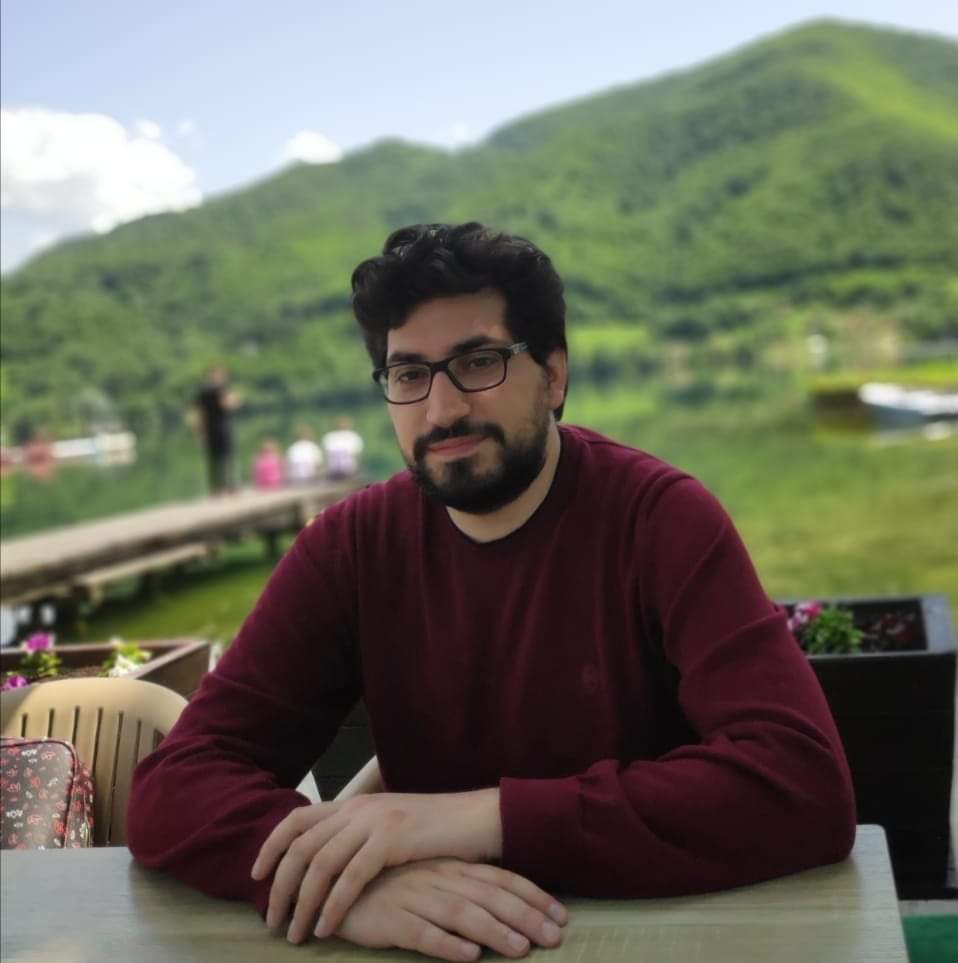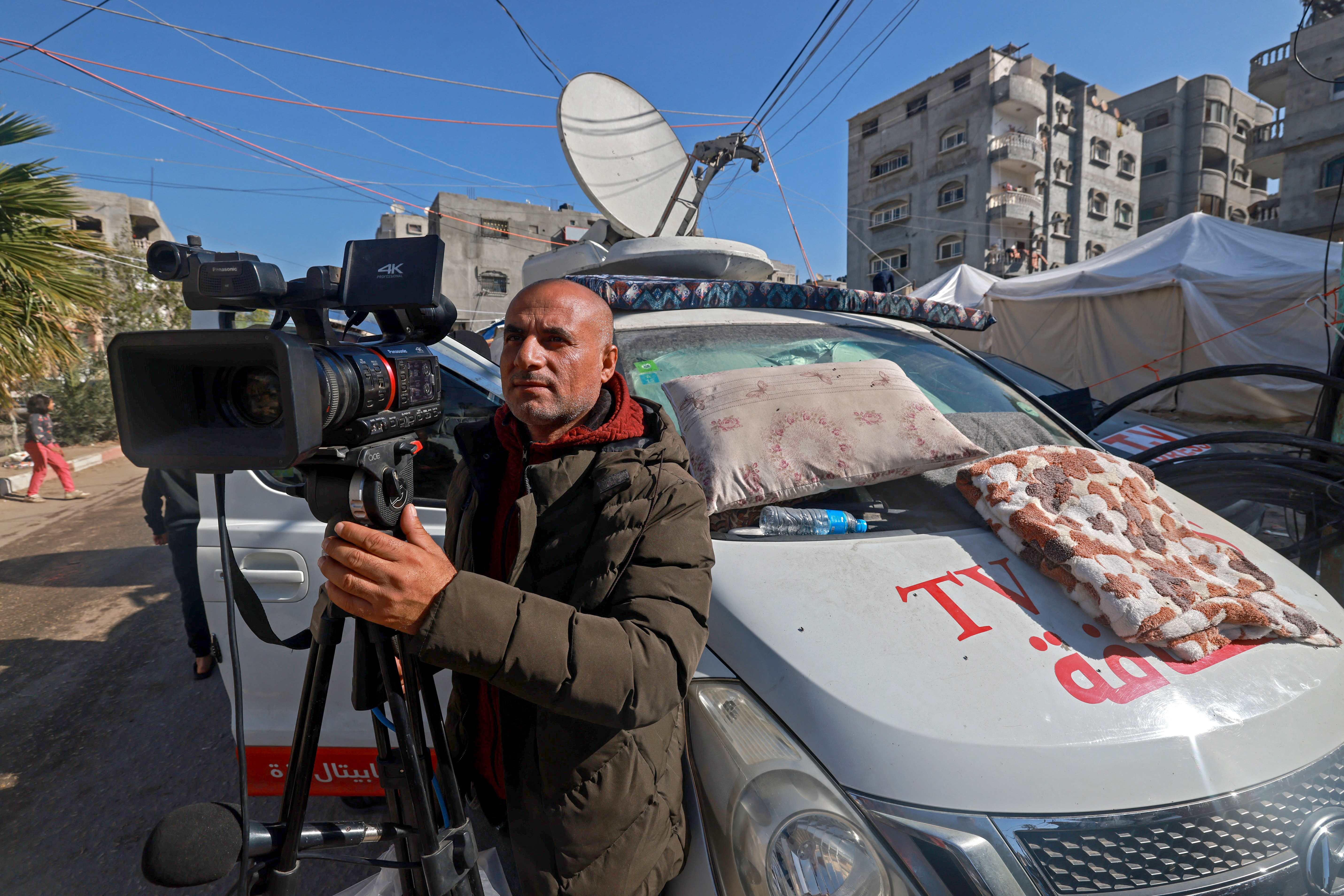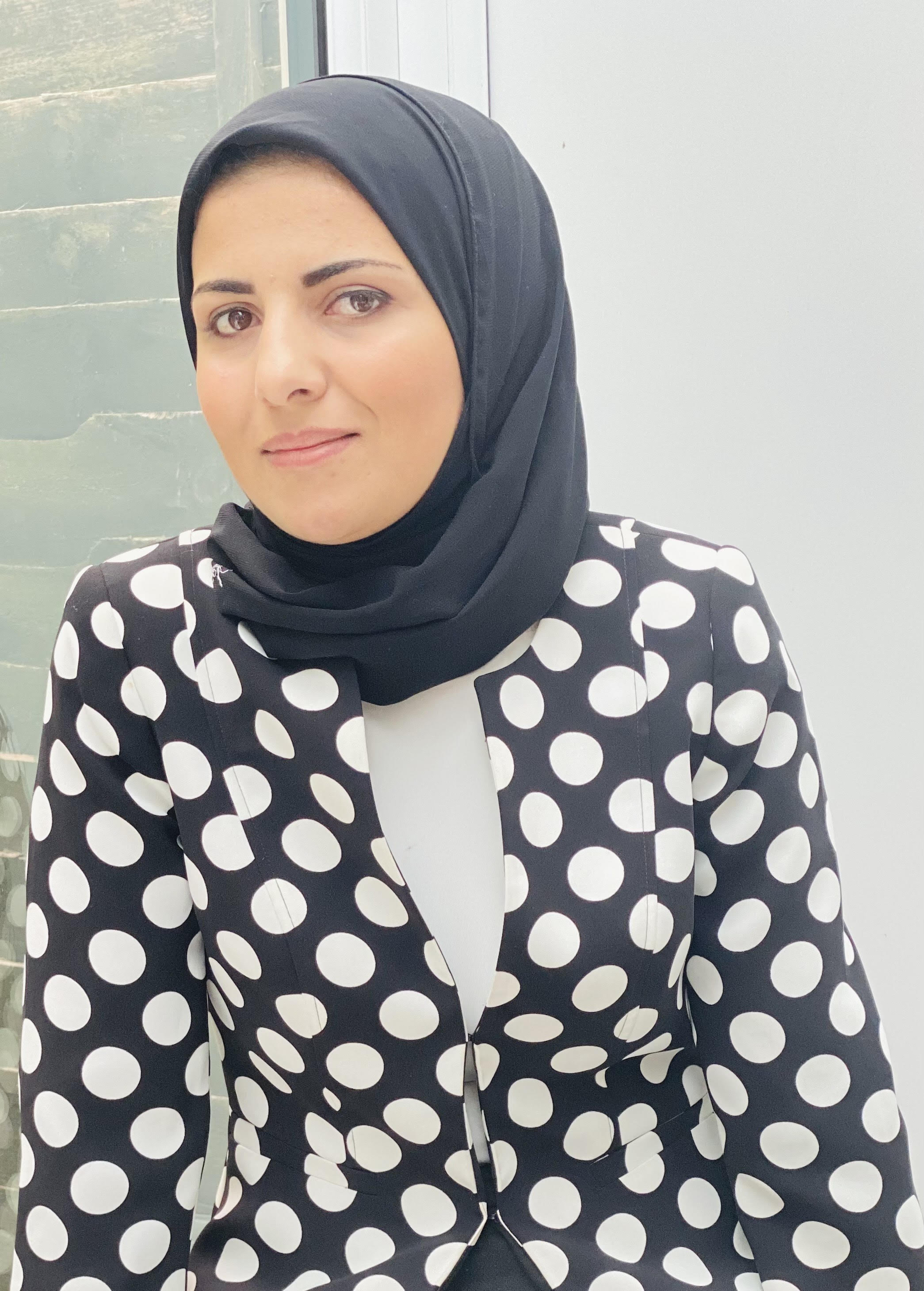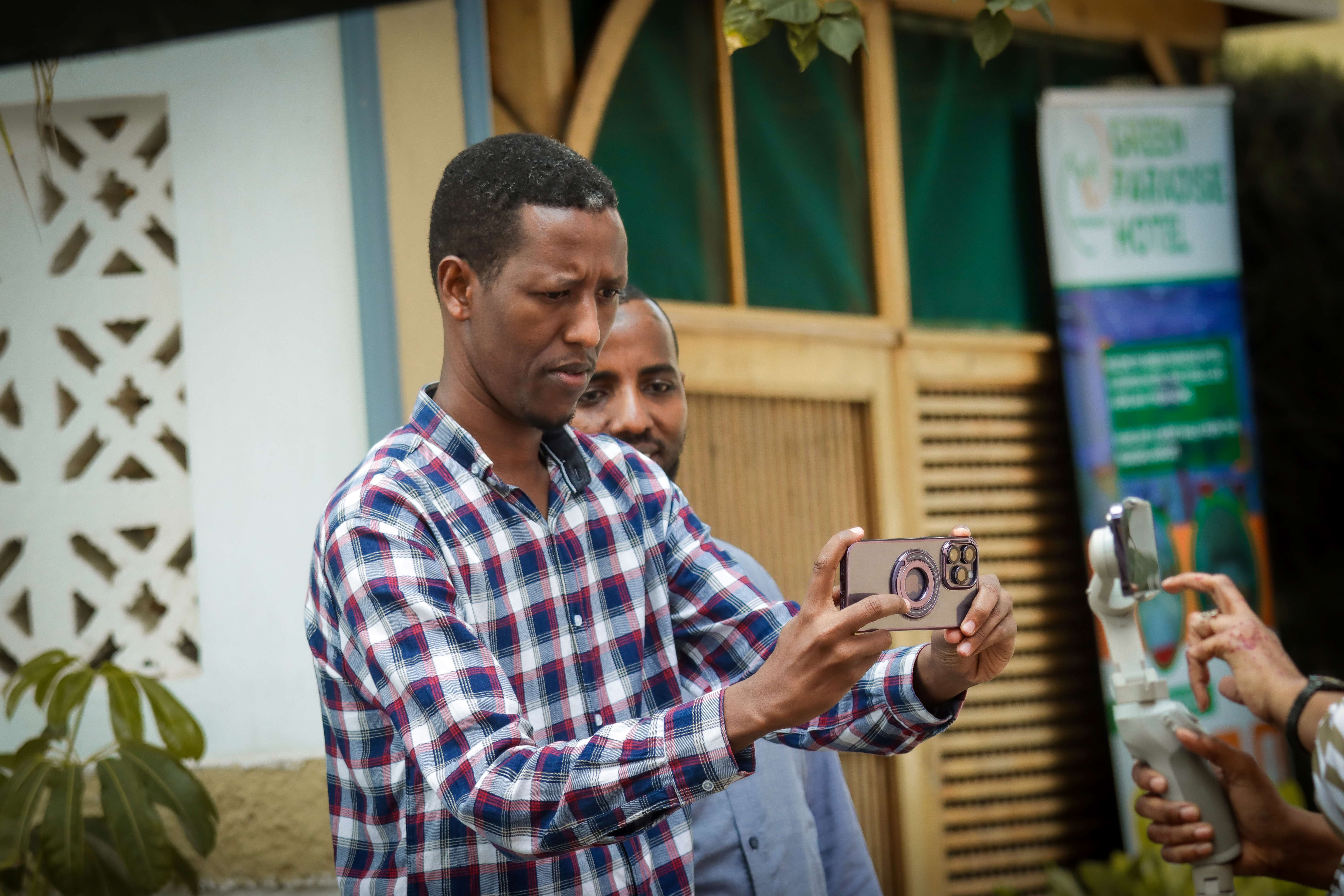ترجمه من الإسبانيّة: بهاء الدين السيوف
في تسعينيّات القرن الماضي وخلال حروب البلقان، اشتهر بعض الصحفيين وهم ينقلون أخبارهم بطريقة استعراضية، تمثلت في ارتدائهم بزات عسكرية، لم يكن المضحك في الأمر ظهورهم على الشاشة بالخوذ والجزمات العسكرية والسترات الواقية، ولا بحذرهم البادي أثناء تغطيتهم للنزاعات المسلحة، بل كان ذلك في نقلهم للأحداث من أماكن بعيدة عن جبهات القتال وعن أي مناطق خطرة، مشاهد كهذه تكررت خلال حرب الخليج الأولى، وشيئا فشيئا صرنا ندرك أن الاستعراض يفرض نفسه على الرواية الصحيحة للوقائع.
ما يجري هذه الأسابيع خلال التغطية الإعلامية لانتشار فيروس كورونا يذكرنا بتلك المواقف: صحفيون يتوجهون لجماهيرهم بأقنعة للوجه ومعاطف أحيانا، بل إنهم يستخدمون مايكروفونات مغطاة بالبلاستيك، لن تحتاج أن ترفع من صوت التلفزيون شيئا كي تدرك أن القيامة تحوم فوق رأسك، لِمَ يلبسون كل هذا إن لم يكن الأمر كذلك؟ واحد من الاستثناءات القليلة التي نراها هنا في إسبانيا، لورينزو ميلا، الصحفي في التلفزيون الرسمي، الذي فضل الحديث عن الموضوع من شمال إيطاليا دون أن يغطي وجهه، مبديا أسفه الشديد لأن "التهويل ينتشر بشكل أوسع من البيانات".
كانت الحفاوة التي حظي بها الصحفي على شبكات التواصل الاجتماعي هائلة، لكن أعداد المدنيين الذين وقعوا ضحايا لتلك الهستيريا المرافقة للوباء كانت أكبر بكثير.
لسوء الحظ تخلى عدد كبير من مؤسساتنا الصحفية عن الاضطلاع بدوره الاجتماعي، وعلى العكس من ذلك، راحت وسائل الإعلام تصُب غضبها على الصحافة الصفراء وروابط العناوين التي تشد الانتباه "كليك بيت". قليلون جدا هم الذين تعاملوا مع الأمر بوضوح ومصداقية، وأتاحوا المجال للخبراء وحدهم كي يتصدروا المشهد في توعية المواطنين ودراسة الإحصائيات الرسمية ومقارنتها.
وهكذا، كان هناك من كرّسوا أنفسهم للتنبؤ بكل أنواع الكوارث الوشيكة؛ من تهديدات بإغلاق الحدود وعزل السكان إلى إلغاء وسائط النقل، وهناك من عمل كفزّاعة لكل أسباب انتقال العدوى؛ من لدغات البعوض أو تداول العملات والفواتير، ومنهم من تصدَّر الحديث عن وصفات علاجية غريبة؛ من غسل اليدين ببَول الأطفال أو تجفيف اليدين بمجفف الشعر أو حتى تعاطي الكوكايين، وهنالك من اكتفى بعكس ردود أفعال المواطنين الذي يعيشون حالة الهلع باستنفادهم لمخزون الأقنعة في البلاد والصابون المطهِّر، وكذلك استنفاد الأغذية تحسُّبا لتعرض البلاد إلى الحصار.
من مدونته الخاصة على النسخة الرقمية لصحيفة "إل باييس" الإسبانية، ذكر الصحفي المعتدل إينياكي غابيلون أن ما نحن بصدده هو عبارة عن فيروس لا يمكنه التطور في كل الحالات، وأن حالات الوفاة بسببه لم تصل إلى ثلاثة بالمئة في الصين، بينما بلغت سبعة إلى عشرة من الواحد بالمئة خارجها، كما قال إن الفيروس يؤثر على الأشخاص الذين يعانون من أمراض سابقة وكبار السن، منبها إلى أن هناك ستة آلاف شخص يموتون بالإنفلونزا الموسمية سنويا في إسبانيا وحدها، دون الحاجة إلى رفع حالة التأهب أو نشر اللقاحات المختلفة إلى هذا الحد: "طبيعتنا المولعة بالإحصاء هي من أثار الأمر بهذا الشكل".
لا تتحمل صحف الأزمات أو القنوات المغمورة المسؤولية الأخلاقية في مثل هذه الأزمات، لكنها تقع على عاتق المصادر التي نعتبرها موثوقة والتي تتمتع بالمصداقية العالية، فقد وقع الكثير منها في فخ استثمار الفوضى، مخصصين مساحة إعلامية واسعة للحديث عن آخر مستجدات انتشار الوباء وآثاره، في الوقت الذي خصص فيه آخرون المساحات ذاتها للتحذير من التهويل المبالغ فيه بشأن الفيروس، والعمل على مقارنة الإحصائيات الرسمية وتكذيب الأخبار الزائفة التي تتسرب إلى كل مكان، البعض كذلك تمكن من تشكيل حلقات إعلامية يتكلم من خلالها مع موفديه إلى كل مناطق انتشار العدوى بحيث يخصص خمس دقائق لكل مراسل، بهدف إيصال رسالة تطمين إلى المواطنين.
ليس بمقدورك بيع السلعتين في الوقت ذاته؛ الإخطار والتطمين، الموت الأكيد والغياب التام للخطر، كل العاملين في الصحافة يدركون أن الأهمية التي يوليها الصحفي أي مسألة فإن بالإمكان قياسها بمقدار الوقت الذي يخصصه للحديث عنها، وإن الحديث الأخير المفرط حول الكورونا -إن لم يكن إفراده برؤوس الكلام- لا يسهم إلا في تضخيم المسألة.
تتلاشى في هذه المواقف كذلك المسؤولية التي ينبغي أن تتولاها السلطات الرسمية، كما رأينا في مهرجان البندقية أو ملتقى الهاتف النقال العالمي في برشلونة، فقد سارعت السلطات إلى تعليق هذه الفعاليات الاحتفالية ذات الحضور الواسع، إن تأثير الخوف في هذه الحالات ينطوي على لفت الانتباه؛ بما أن الجميع يتحدث عن الموضوع ذاته، فإن من الأفضل عدم المجازفة، هكذا قد يفكر البعض، ليس يهم الآن إن كانت أقنعة الوجه في البندقية قد صممت للوقاية من الأوبئة الأشد فتكا، أو إذا كانت احتمالية انتشار الفيروس في منتديات التكنولوجيا هي ذاتها في سوق للخضراوات، لكن الرعب يمتلك دائما القدرة على أن يغذي نفسه، لذا فإن كل إلغاء لاحتفالية ما هو سبب آخر للقلق.
إن مثل هذه الحالات تقدم لنا إمكانية دراسة كيفية تلوث الصحافة بمواضيع معينة. يشكل الصينيون اليوم قوة عظمى كما يتمتعون بتعاطف غريب من قبل الإسبان، ولا شك أن النكات التي تتناول متاجر الحلي الآسيوية أو الحيوانات التي يأكلها الصينيون تعمل في كثير من الأحيان على التخفيف من حدة تأثير انتشار الوباء، مَن كان سيعرف ما سيحدث لو بدأ التركيز الأساسي لانتشار الفيروس في بلدان لا تتمتع بتلك السمعة الطيبة؟ مثل الجزائر أو إسرائيل أو إيران، هل كانوا سيطالبون بإغلاق الحدود؟ وهل كان سيتعرض مواطنو هذه الدول وكل من تبدو عليه ملامح الشرق أوسطيين للازدراء من بقية الشعوب؟
في النهاية، لا تزال الشائعات وأنصاف الحقائق والتكهنات بأشكالها تتفشى بشكل أكبر بكثير من الحقيقة المنشودة، فلا يكاد يمر يوم دون أن نسمع عن وصول الفيروس إلى وجهة جديدة، آخر ما تبادر إلى سمعي كان أنه بعد إلغاء مهرجان البندقية لهذا العام فإن من الممكن أن يكون التالي هو أسبوع الآلام المقدس في إشبيلية، بما أن باب المراهنة مفتوح، فنحن الذين لسنا بذلك الورع لنشارك في مثل هذه المناسبات، بل نعاني منها الأمرين لما يتخللها من اكتظاظ للشوارع والساحات، ندرك أننا لن نبلغ ذاك المنال: "ولن نعيش لنرى ذلك".









































